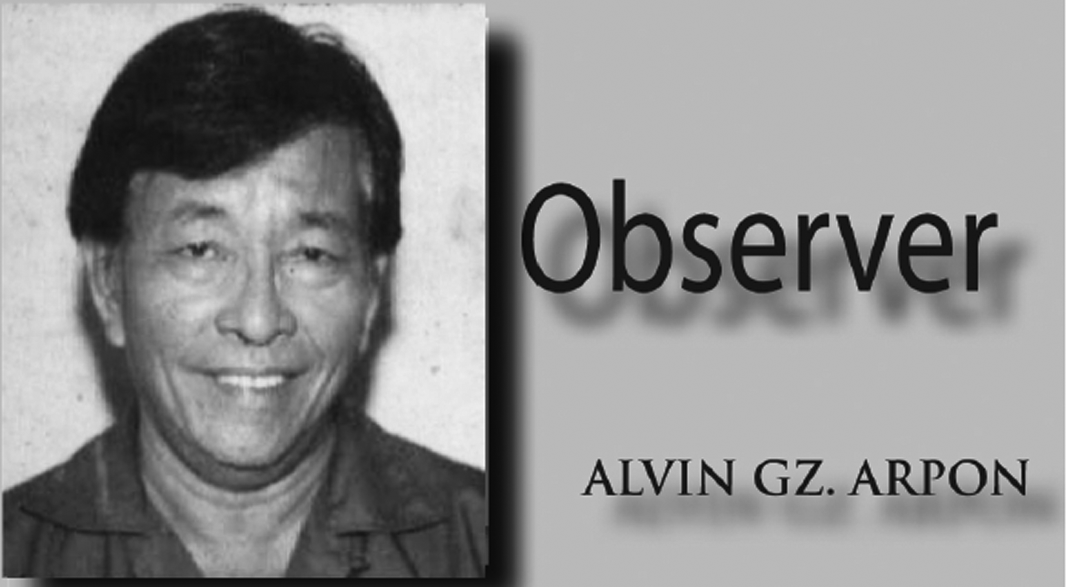Every member of the Roman Catholic Church would wish to have a chance to view a pope’s countenance in person, if possible up-close. The excitement is more intense if the pope comes to the latter’s own place of residence. If provided the means, the churchgoer would partake whatever he has just to obtain this one opportunity in a lifetime at a greater chance. So do some people think, especially those who are in a position to do so. However, such may not be the case in the apostolic visit of Pope Francis to the Philippines on January 15-19, 2015.
This is simply because, as articulated by Palo Archbishop John Forrosuelo Du in an inquirer.net interview, “If possible, the Pope wants to stay away from the big people, the VIPs.” The term VIPs presupposes the inclusion of politicians who are definitely economically affluent, the wealthy businessmen and other big wigs in the bureaucracy. ““He will be sitting side by side with poor people. Simple food will be served and there will be no VIPs,” Arch. Du was further quoted. Thus, his appeal to those concerned VIPs, “Please give way to the poor for they are the main reason the Pope will come here.”
It was not only Arch. Du who appealed for the VIPs not to take the centerstage in the Pope’s visit and who stressed that Pope Francis came to have time with the victims of supertyphoon Yolanda’s outrage on November 8, 2013. The prelate from Palawan advanced same drift of message on keeping the simplicity of the preparations for this apostolic visit of the Vicar of Christ.
Bishop Pedro Arigo, apostolic vicar of Puerto Princesa, in an article posted on a Chruch website remarked, “The activities and programs to be prepared must be in keeping with the Pope’s personality. Let us avoid holding costly, wasteful and extravagant receptions,” adding, “These, I think, will greatly displease him because they will not be consistent with his message of love and care for the poor,” he added. In an inquirer online news, Bishop Arigo was quoted of stating that an expression of hospitality—a trait Filipinos are known for worldwide—marked by ostentation and insensitivity would likely be an insult to the poor, reminding rather the faithful “to focus on the message that the Pope would be bringing instead of satisfying one’s personal “need” to brag about having met him in person.”
Will all these rhetorics suffice to warn the VIPs from utilizing all avenues just to have the elusive chance to as the colloquy dubs “rub elbows” and say “cheese” with the Pope? Only the host could tell. Although this may not be at all the case in the local preparations for the Pope’s visit, but general observation and experience insinuate, the VIPs may still have the chance to be in the exclusive lunch to be tendered for the Pope after all.
As it is stated in the same inquirer.net news, Arch. Du was quoted, “If possible the Pope wants to stay away from the big people, the VIPs,” and that he will “select 30 individuals who will dine with the Holy Father. The group, he said, will include five people from northern Cebu, five Boholanos while the rest are from Leyte.” But this is not at all a big issue to waste one’s time pondering on for in the end Arch. Du will not decide solely by himself on the matter with respect to the preps for this papal visit. There is the Church’s hierarchy, not to elaborate from the Vatican Protocol Committee, that will finally determine up to what extent the hospitality and goodwill will stretch. Lest this fact be disregarded, the preparation for the 6-1/2 hours visit of the head of state of the Vatican, in the person of Pope Francis, is not exclusively shouldered by the local church, the Pope being the chief leader of the biggest religious organization in whole wide world. The stakeholders from both the public and private sectors are and could be part of the entire outsourcing, either as a benefactor, contributor or key player. There is nothing irregular when the government uses funds for the Pope’s apostolic visit, because the Philippine jurisprudence has in a line of decisions considered the Pope as the head of state called Vatican.
A greater concern could be how to ensure the safety of the Pope and the entire mammoth of faithful in the areas where he will be, avoiding a scenario that is most inimical to the stability of the Church leadership and collapse of Christian faith. As reported, he Pope will be boarding a “Popemobile” that will come from Metro Manila. Arch. Du also disclosed inth inquirer.net interview his anticipation for the possibility Pope Francis going down from his Popemobile to interact with the poor, particularly “the slum area and those who are homeless until now.” He advanced that the Pope’s representatives told him that if the Holy Father will go down from the Popemobile, “I simply have to accompany him.” Even though Arch. Du reported that they are actually 70 percent ready in terms physical preparations, the roads that have to be widened (fast-tracked implementation according to engineering authorities) are yet to improve and a lot of construction of homes for the homeless victims of Yolanda is underway. The Pope may not even care whether the road is widened or the homes are constructed, unless the Vatican fused in funds for these earthworks and they are expected to be done by his day of visit.
Hopefully there are no other major concerns that will mar the visit of the Pope, except natural calamity that could forestall the apostolic visit by making the Pope’s travel impossible and perilous. And this is among what we should pray for sincerely and fervently along with the intentions in the National Prayer for the Papal Visit centering on mercy and compassion. Mercy and compassion, the theme of the Pope’s papacy, is adopted as theme of the Papal Visit, thus beckoning the faithful towards spiritual preparation by way of spiritual and corporal works of mercy.
As to the issue on the sale of tickets for the papal visit, nothing escalated as yet to the public’s awareness. Hopefully the warning of the Vatican through the Apostolic Nunciature in Manila, addressed to the public through the CBCP, against the sale of any ticket for the rare affair. Arch. Du announced that Pope Francis will celebrate the Holy Mass of the Pope around 10:30 AM of January 17 at the Tacloban Airport and will later proceed to the Pope Francis Center for the Poor to inaugurate it and to the newly repaired Palo Cathedral to bless it. Both the construction of the Center and the Cathedral are being funded by the Vatican.
There really should be no fanfare to expect in the visit of the Pope. The innate character and values of the Filipinos to give the best for a very special guest and the wish of every leader to be side-by-side with him that plays up drumbeat. Inwardly though, the fact of the Pope’s representation as the Vicar of Christ and the successor of St. Peter that arouse the excitement towards this auspicious day of his being with the poor victims of Yolanda.
As one local vicar said, whether or not he will have the privilege to be invited in a gathering amidst of the Pope’s presence what is more important to him is that he is in a sincere disposition worthy to receive the Pope as guest by showing mercy and compassion to his brethren especially those poor in material possession and in spirit. It is through this acts or mercy and compassion that he can share the same grace that people pray for to obtain in the days towards the apostolic visit of Pope Francis.





A taste of heaven
WE have just celebrated the Solemnity of the Assumption of the Blessed Virgin Mary, the perfect and universal mother given to all of us by no less than Christ himself. The celebration somehow reminds us that, like her, we are meant for heaven, our ultimate destination. Where she is now, we can expect ourselves to be, if we do our part. To be sure, as based on our faith, this is God’s will for us. He will do everything to make this will of his a reality. He created us endowing us with faculties that would enable us, together with his grace, to attain this end. But obviously, he does not impose his will on us forcefully. We need to correspond to this will freely and lovingly. It’s true that when we die, our body and soul would be separated, but that separation would only be temporary, since at the end of time, our faith tells us that there will also be the resurrection of the body which will reunite with the soul. Our definitive state will be as man with body and soul together either in heaven or in hell. It would be good if we can include in our mentality, lifestyle and culture the frequent consideration of heaven. It would be good if we develop a taste of heaven even now. This is not an impossibility. In fact, it is a necessity. Such awareness and attitude would help us greatly in giving our earthly life its proper shape and direction. It would give us a complete picture of our life that should go beyond the here and now, and even beyond death. Otherwise, we would have a myopic, shallow, narrow, if not distorted and erroneous view of life, and would be, in the words of St. Paul, “tossed to and fro, and carried about with every wind of doctrine by the wickedness of men…” (Eph 4,14) In other words and contrary to some claims, the frequent consideration of heaven would make us more realistic in our outlook and understanding of our life. It does not desensitize us from our more immediate needs and duties in our life now. Rather, it sharpens our sensitivities and brings them to their proper and ultimate goal and consequences. But we have to understand what heaven really is. There are now a myriad of versions of heaven based more on one’s condition rather than on our Christian faith. Some people make money, food, power, drugs, sex, beer their heaven, for example. Others, like the hedonists, materialists, naturalists, stoics, Communists, Buddhists, Confucianists, Shintoists, Hindus, etc., have their own versions of heaven. It’s good for the Christian faithful to firm up their belief and understanding of the Christian heaven. It is not so much a place as a state of life. Though it is a supernatural mystery, it is very much accessible in a tentative way even while here on earth. Let’s remember Christ telling us, “Blessed are the poor in spirit for theirs is the Kingdom of heaven,” the first among the beatitudes and expressed in the present tense and not in the future tense, as in a promise. Heaven, at least in its initial state, can be had here and now. The greatness of God, his power and majesty, his infinite wisdom, love and mercy can be played out in the ordinary circumstances of our life. We can already enjoy heaven here on earth as long as we have the proper attitude and the proper state of our soul. Obviously, heaven is impossible to describe in human terms. It will always escape human definition and description. St. Paul once said: “Eye has not seen, nor ear heard, neither has it entered into the heart of man, what things God has prepared for them that love him.” (1 Cor 2,9) But based on what our faith tells us, heaven must be when we are truly and completely identified with Christ forever, when God becomes “all in all” (1 Cor 15,28).It is when our mind and heart are fully in synch with God’s will, whether here and now or at our death and after. Christ used parables to describe the kingdom of heaven. It’s good to go through them to give us at least some ideas of how heaven is now and will be in the future, in eternity. We need to review the parables of the sower and the seed, the good seed and the weeds, the mustard seed, the hidden treasure, the good fish and the bad fish. These parables tell us where we can find heaven even while here on earth.